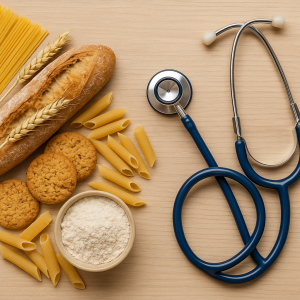 Let’s look at the best dietary strategy for clearing arterial pathways, specifically atherosclerotic plaque accumulation. This knowledge, which is about to have a big influence on your comprehension, can be applied to a lot of physiological problems because heart attacks are the biggest cause of death.
Let’s look at the best dietary strategy for clearing arterial pathways, specifically atherosclerotic plaque accumulation. This knowledge, which is about to have a big influence on your comprehension, can be applied to a lot of physiological problems because heart attacks are the biggest cause of death.
My study, which examines germ-free mice, offers fascinating new perspectives. These mice are used as test subjects for a variety of studies because they do not contain any microbes. The lack of microorganisms causes a number of negative consequences, such as growth retardation, pulmonary and cardiac underdevelopment, liver atrophy, decreased cardiac output, intestinal lining thinning, gastrointestinal issues, immune system dysfunction, inflammation, and lymph node atrophy.
An investigation into possible relationships between germ-free environments and arterial health was spurred by these findings. The significant influence of microbial balance, or dysbiosis, on arterial function was further highlighted by subsequent findings. The removal of gut microbes causes systemic inflammation, which is important because it affects the walls of arteries. Blood is not sterile, despite popular belief; arterial plaques are home to pathogens such as chlamydia, H. pylori, and Staphylococcus. Furthermore, like other body organs, arteries contain a diverse microbial community.
Article continued below
Because it prevents arterial calcium deposition, vitamin K2 becomes an important factor in arterial health. Interestingly, bacteria in the gut help produce vitamin K2, which is made from vitamin K1 found in leafy greens. Vitamin K2 is abundant in fermented foods high in fat, such as cheese and some sausages. The combination of this vitamin and vitamin D3 increases its effectiveness even more, and the suggested dosages preserve the ideal ratio.
As naturally occurring atheroprotective agents, probiotics reduce the development of plaque, calcium accumulation, and arterial hardening. These beneficial gut microorganisms break down dietary fiber to produce short-chain fatty acids, which control blood sugar and insulin levels and lessen inflammation in the arteries.
This talk emphasizes how critical it is to reassess eating patterns, shifting from sterile, processed foods to a microbiome-nourishing diet. In order to preserve arterial health and general well-being, it is essential to cultivate microbial diversity in the gut through targeted supplementation or fermented foods.






